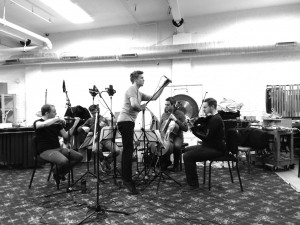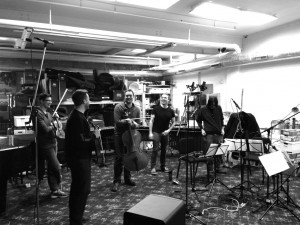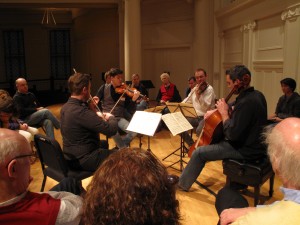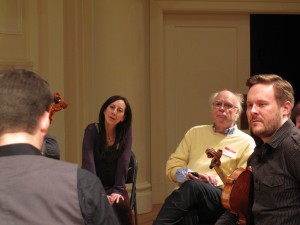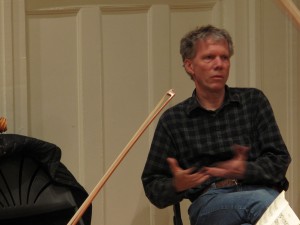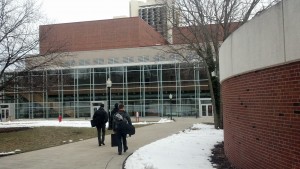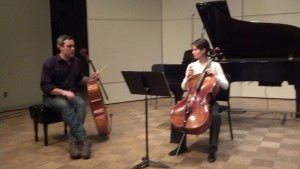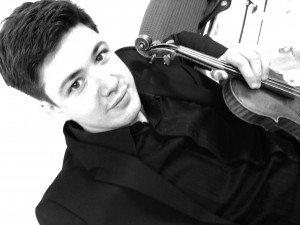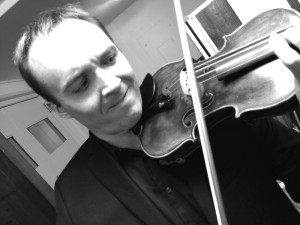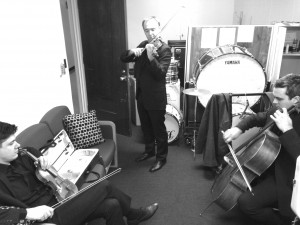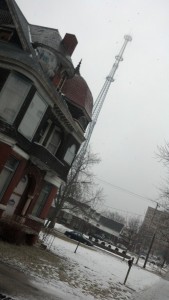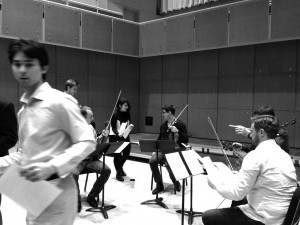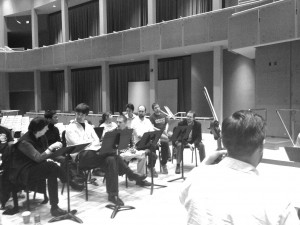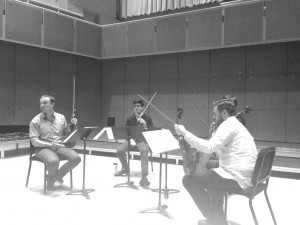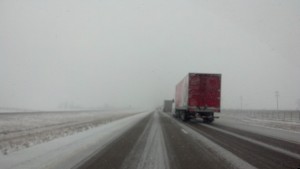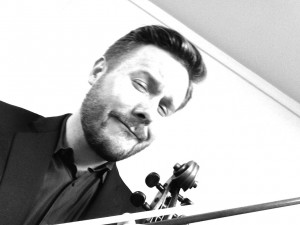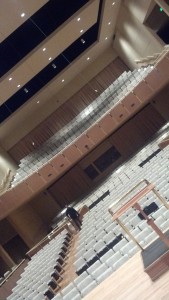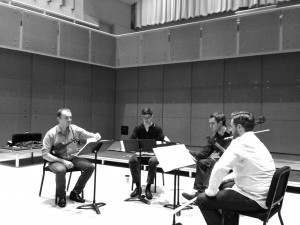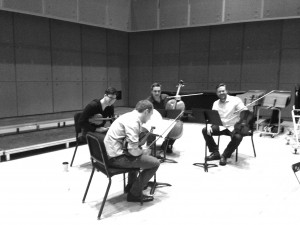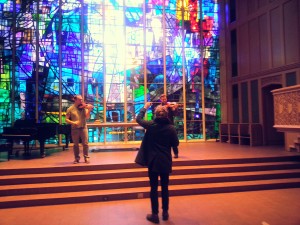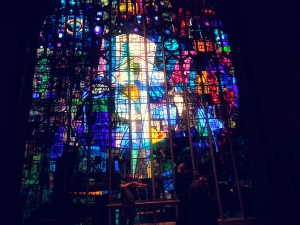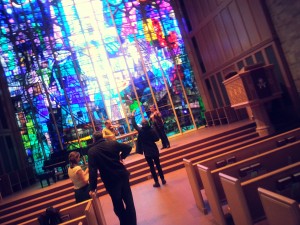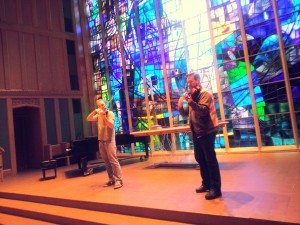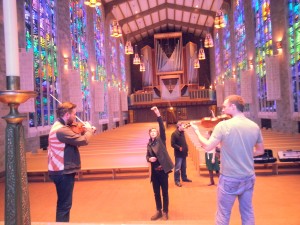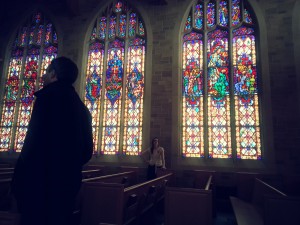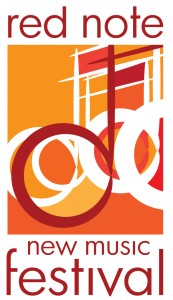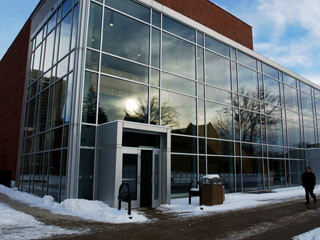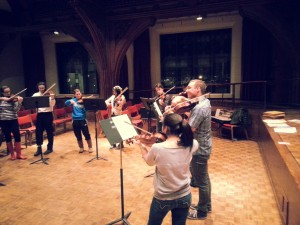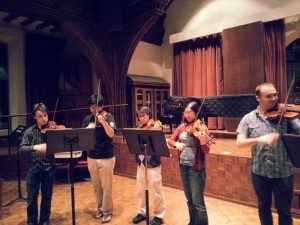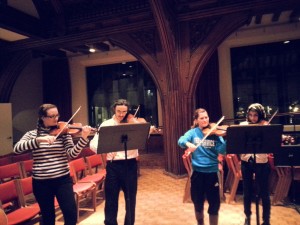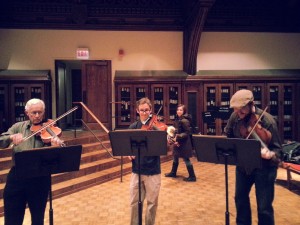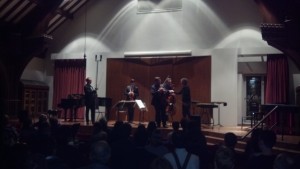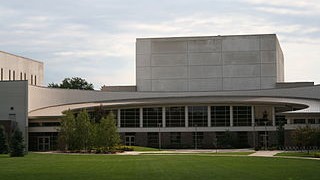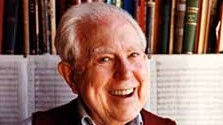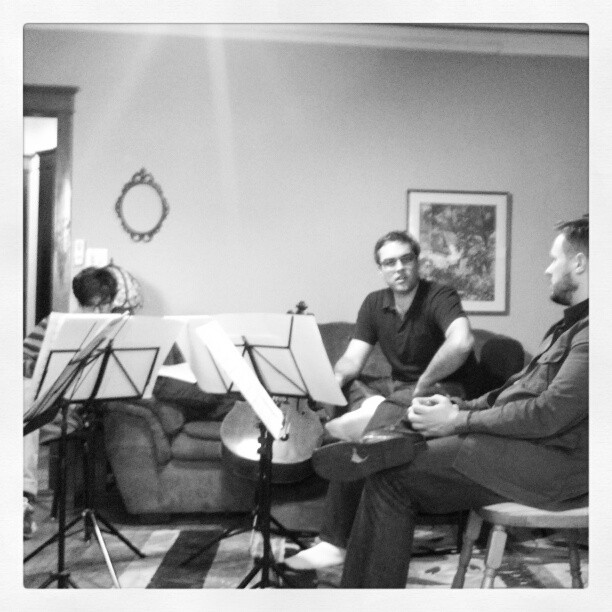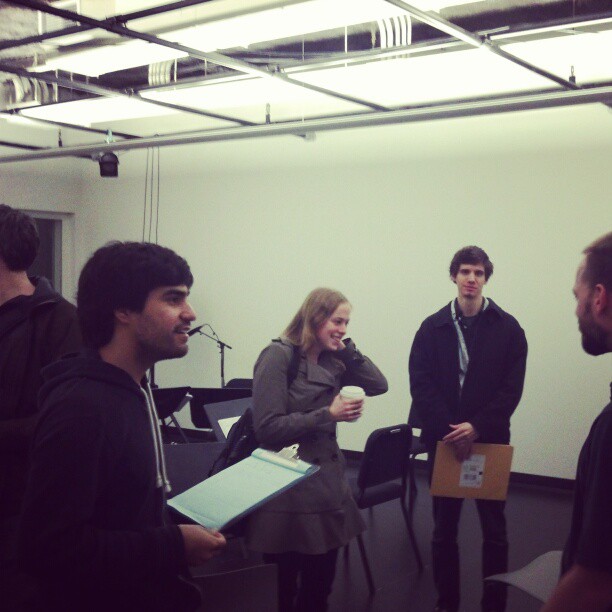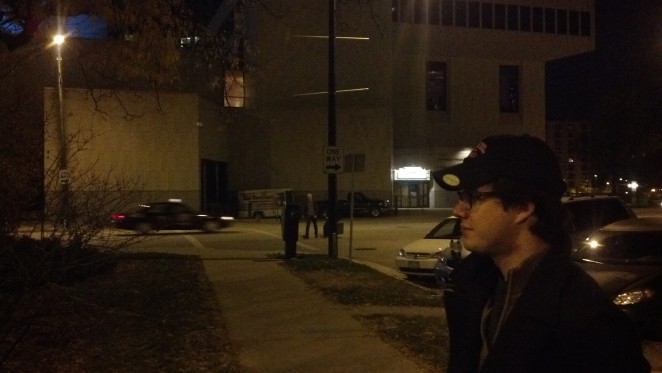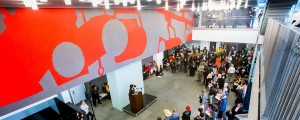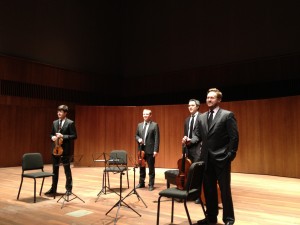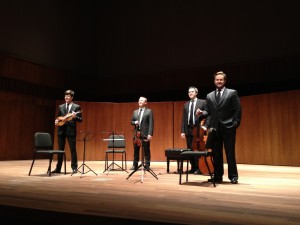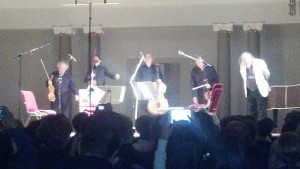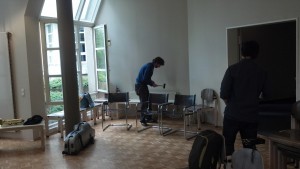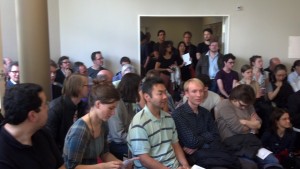This Friday, Spektral takes to the road for a day of masterclass and performance at Augustana College in Rock Island, IL. We're very much looking forward to premiering a new work by Jacob Bancks, entitled Canticle, who I've known for several years since he was a student at the University of Chicago and I played Messiaen's Quartet for the End of Time with his wife Kara, an excellent clarinetist. Here are some thoughts from him about his personal approach to composition and the string quartet genre.
JAW: In approaching a new work for string quartet, do you find the tradition of the repertoire inspiring or encumbering? What are your favorite quartets and did you draw any inspiration from them for this work?
JB: A lot of composers talk about being weighted down by Mozart, Shostakovich, whomever, when writing string quartets. Honestly, I never let old, famous works in any genre get in my way; that would be like my three-year-old daughter getting her crayons jumbled by the specter of Picasso. And plenty of people can't tell the difference between the two anyway. There are however a few canonical string quartets that I'm constantly engaging, in this project and elsewhere. As a nerdy undergrad I went up to Performers' Music on Michigan Ave. and devoutly bought that red faux-leather volume of the complete Bartók quartets like it was the Book of Common Prayer. Every couple of years I go back to those, and my mind is newly-blown; they're like six new works each time I hear them. Of late I've also become an unwitting fan of Joseph Haydn's quartets. I tell my theory students, Haydn's like your dad: you think he's boring now, but the older you get, the more grotesquely fascinating he will become. And I always go back to Beethoven, especially Op. 130 (B-flat Major) which is personally very sentimental to me, and Op. 131 (C-sharp Minor), which I find both exhilarating and baffling. But my real string quartet fetishes of late, which might be obvious from the new work for Spektral, have been Ravel and Debussy. They each wrote only one quartet: why mess with perfection?
JAW: How did you approach putting pen to paper for this work? Did you begin with an idea of the piece as a whole or smaller moments?
JB: In this particular piece, I started with several musical images that I attempted to shape into a cohesive whole. The centerpiece of the work is this temperamental, bold, coarse cello solo, which has the other instruments responding in various stages of confusion and amazement. The rest of the piece centers on two basic ideas, both of which are transformed through the lens of the cello solo: excruciatingly slow, solemn polyphony; and uncontrollable, quietly nervous flickering.
JAW: How has life as a composer changed with your new role as a faculty member, compared to your past life as a composition student at University of Chicago?
JB: I loved UChicago, so leaving was hard. I was actually teaching for two terms before I came back to defend my dissertation, which was when it struck me that I had spent the last six years around some of the most brilliant musical minds on earth. But Augustana has been an ideal gig for so many reasons: I have excellent colleagues, I enjoy my students, my class sizes are small, and I have been able to build a composition program essentially from scratch. And I can swim to Iowa any time I want. Teaching has, without question, made me a better composer. For one, I nag my students enough about their productivity that I've started expecting more out of myself as well. And I love teaching undergraduates from all kinds of backgrounds: there's nothing like playing Firebird for someone who's never heard it before, or helping a student progress from barely reading notes to beginning to digest works of Berio and Feldman within a couple of years. More than anything, teaching keeps me constantly working toward expressing only the most worthwhile ideas with clarity, passion, and coherence, which is exactly what I hope for in my music as well.


